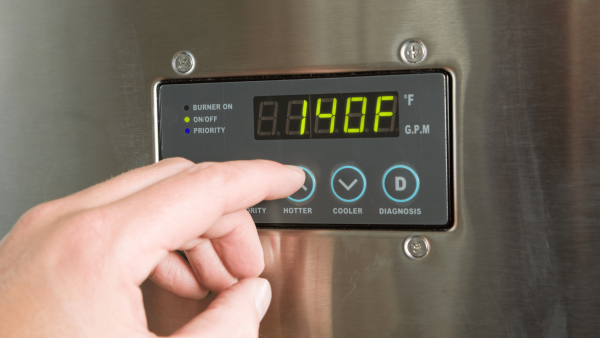Introduction
Hot water is a modern-day luxury we often take for granted until it turns lukewarm mid-shower or leaves us with high energy bills. Enter tankless water heaters, the innovative solution that promises energy efficiency, cost savings, and an endless hot water supply. In this detailed guide, we’ll explore the pros and cons of tankless water heaters. We provide transparent information so you can choose when considering this modern technology.
Pros of Tankless Water Heaters
Energy Efficiency:
Traditional storage tank water heaters continuously heat and reheat water, leading to energy wastage. Tankless water heaters, on the other hand, provide hot water on demand, eliminating standby energy losses. They use less energy, which saves money on bills and helps the environment by producing fewer carbon emissions.
Cost Savings:
While tankless water heaters can be more expensive initially, they save you a lot of money in the long run. They use less energy, so they make up for the initial cost over time. You’ll start saving money faster and keep saving even though they cost more.
Space Utilization:
Say goodbye to those big water tanks that no longer occupy space in your home. Tankless water heaters are small and wall-mounted, so they don’t use much room. The tankless water heater is especially beneficial for smaller houses or apartments with limited space.
Continuous Hot Water Supply:
You won’t have to endure a cold shower with tankless water heaters. They give you hot water right away and as long as you need it, as long as you keep the tap open. While using only a limited amount of hot water at once is possible, you will only experience a sudden loss when taking a bath or a long shower.
Cons of Tankless Water Heaters
Limited Flow Rates:
A single tankless water heater might need help to provide enough hot water for multiple appliances, such as a shower, dishwasher, and laundry. This can result in changes in water temperature. To avoid this issue, install more than one unit or be mindful of your hot water usage.
Power Outages:
Tankless water heaters need electricity so they can stop working during power outages. If you live where power cuts happen often, you might need a backup plan for hot water.
Initial Costs:
The initial investment for a tankless water heater, including installation, is higher than traditional tank heaters. However, the long-term savings and durability often offset this initial expense.
Installation Considerations:
You need help to do a tankless water heater installation. You need a professional because it involves tricky electrical, plumbing, and gas line changes. And remember, there might be extra costs on top of just buying the unit.
Exploring Different Types of Tankless Water Heaters
Gas Tankless Water Heaters:
There are two types: non-condensing and condensing models. Non-condensing ones cost less but might need stainless-steel pipes. Condensing ones work better and are better for the environment.
Electric Tankless Water Heaters:
These use electricity to make hot water right away. Setting the tankless water heater up is usually cheaper, but running the water heater might cost more than gas.
Point-of-Use Tankless Water Heaters:
Ideal for specific applications, such as a bathroom or kitchen sink, these units provide instant hot water where needed, reducing water wastage.
Is Tankless Hot Water Right for You?
Before making the switch, consider your household’s hot water usage patterns, location’s climate, and existing water heater setup. Assess the pros and cons of tankless water heaters outlined in this guide to determine if a tankless water heater aligns with your needs.
Conclusion
Overall, tankless water heaters have many advantages, including energy efficiency and cost savings, space utilization, and uninterrupted hot water supply. However, it’s essential to be aware of their limitations, which include installation complexity and potential flow rate issues. By carefully weighing the pros and cons of tankless water heaters against your specific circumstances, you can confidently decide if this technology is the right fit for your home. Remember, making informed decisions leads to lasting comfort and savings.





